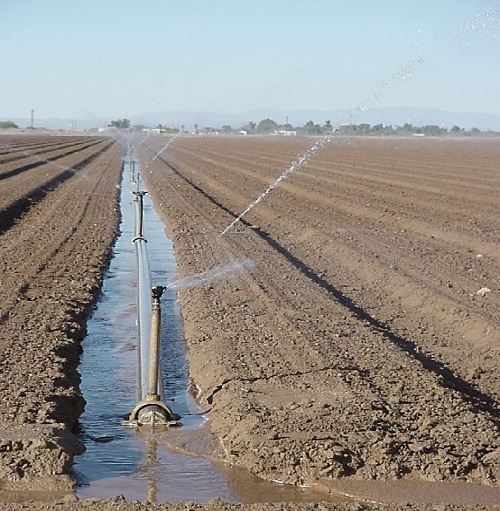Arizona Agriculture Makes a Commitment to Streamline its Water Policy
Published
11/13/2013
By Julie Murphree, Arizona Farm Bureau: Last week at Arizona Farm Bureau's 92nd Annual Meeting in Scottsdale, the delegate body unanimously passed a motion to form an ad hoc committee to streamline and organize Arizona Farm Bureau's water policy.
Maricopa County Farm Bureau proposed the Ad Hoc committee and put before the delegate body some guiding principles on behalf of committee members. Their motion follows.

(Note: This is not a policy. It is a motion to form an ad hoc committee)
Maricopa County Farm Bureau moves that the Arizona Farm Bureau Federation form an ad hoc committee to study all Arizona Farm Bureau policies regarding water, with the goal to streamline, organize and make recommendations regarding water policy. This committee will report their work to the County Farm Bureaus of the state in time for consideration during the policy development process that will conclude with the 2014 Arizona Farm Bureau annual meeting.
The work of the committee would be generally guided by the following basic principles:
- There is
public benefit topreservation of agriculture in urbanizing areas.
- Where development occurs, it should be on land having a historical use of water.
- New development should pay for its economic costs.
- No government policy should be used to interfere with
agricultural use of water, as long as a source of water is available.
- We support “water augmentation” efforts for communities and watersheds, where those efforts enhance supplies, without negatively impacting another area.
- Water transfers should be transparent, consider all community impacts and be subject to local control.
- The Department of Water Resources should be adequately funded to meet public expectations and legal obligations.
- We need statewide efforts as to water
planning, but subject to local community support.
The value of this special committee's efforts cannot
And, as some Arizona "water influencers"
"There has been so much done throughout Arizona’s history to aggressively acquire, secure and protect Arizona’s water and get it put to use," says Sandra Fabritz-Whitney, director of the Arizona Department of Water Resources. "I base the future on that same determination. What I see still in Arizona are people who are dedicated to the long-term economic development and security of the state. So, coming at it from that perspective, I’m very hopeful and feel that our future is very promising; not that it’s not without its challenges. That same resolve we’ve previously used to secure and develop water supplies, construct reservoirs and dams that maintain those water supplies and reduce variability, must be applied to our future efforts."
Another voice suggests that preserving agriculture is truly about the water in this state. "Preserving agriculture in Arizona is not about land," says Grady Gammage,
Arizona Farm Bureau's Government Relations Director Joe Sigg points to our ongoing commitment to working out the differences on water policy and preserving a vital natural resource in our desert state. "Conversations about water in Arizona are ongoing and this process of Farm Bureau will keep our engagement well represented, clear and fresh," says Sigg.